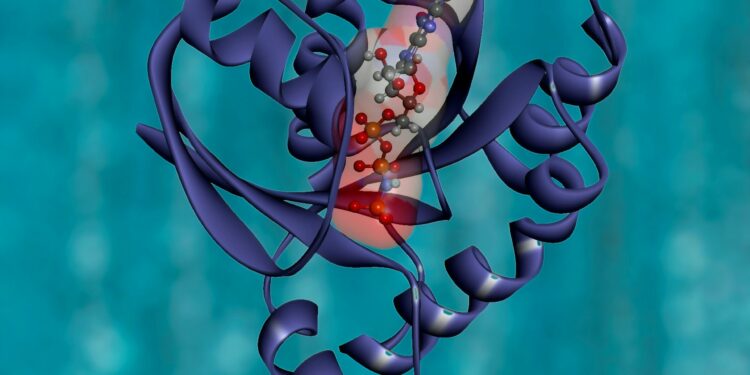The new information clarifies why some people are spared.
A newly discovered genetic mutation, identified as P3S-humanin, has emerged as a potential safeguard against Alzheimer’s disease, particularly for individuals carrying the APOE4 gene, which significantly increases the risk of developing the condition.
Researchers have found that this protective mutation enhances cell function by prompting the production of a more potent form of humanin, a small protein crucial for cellular activity. Humanin levels are notably elevated in individuals who have surpassed the age of 100, despite harboring the APOE4 gene, which not only heightens susceptibility to Alzheimer’s but also predisposes individuals to premature mortality.
Furthermore, humanin generated by the P3S variant has exhibited efficacy in clearing amyloid beta, a protein associated with Alzheimer’s pathology, from the brains of laboratory mice carrying the APOE4 gene.
Dr. Pinchas Cohen, senior study author and dean of the University of Southern California (USC) Leonard Davis School of Gerontology, remarked on the significance of these findings, emphasizing the role of resilience genes in extending lifespan and mitigating Alzheimer’s risk.
The P3S-humanin variant is notably rare, primarily found among individuals of Ashkenazi Jewish descent. It is believed to facilitate mitochondrial production of humanin, which serves to counteract cellular aging and stress.
Humanin’s multifaceted benefits include protecting brain health, reducing inflammation and stress, improving blood sugar metabolism, and enhancing insulin sensitivity, thus addressing factors contributing to conditions like Alzheimer’s and type 2 diabetes.
In a study involving over 500 healthy centenarians and their descendants, researchers observed that individuals of Ashkenazi descent were more likely to carry the P3S variant. Moreover, centenarians carrying both the APOE4 and P3S-humanin genes displayed superior cognitive function compared to those lacking the latter, suggesting a protective effect against Alzheimer’s.
Further experimentation with mice carrying a humanized APOE4 gene revealed that treatment with P3S-derived humanin significantly reduced amyloid beta levels in the brain, outperforming standard humanin treatment.
The study’s lead researcher, Brendan Miller of the Salk Institute for Biological Studies, highlighted the potential of P3S-humanin in mitigating Alzheimer’s risk by effectively binding with the APOE4 protein product, facilitating the clearance of amyloid-beta plaques.
These findings offer promising insights for the development of future Alzheimer’s therapies targeting the APOE4 gene, leveraging the unique properties of P3S-derived humanin. Additionally, humanin may hold potential in combating other age-related diseases, paving the way for novel treatment strategies in geriatric medicine.

































Discussion about this post